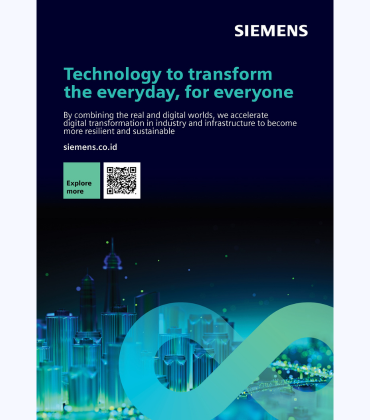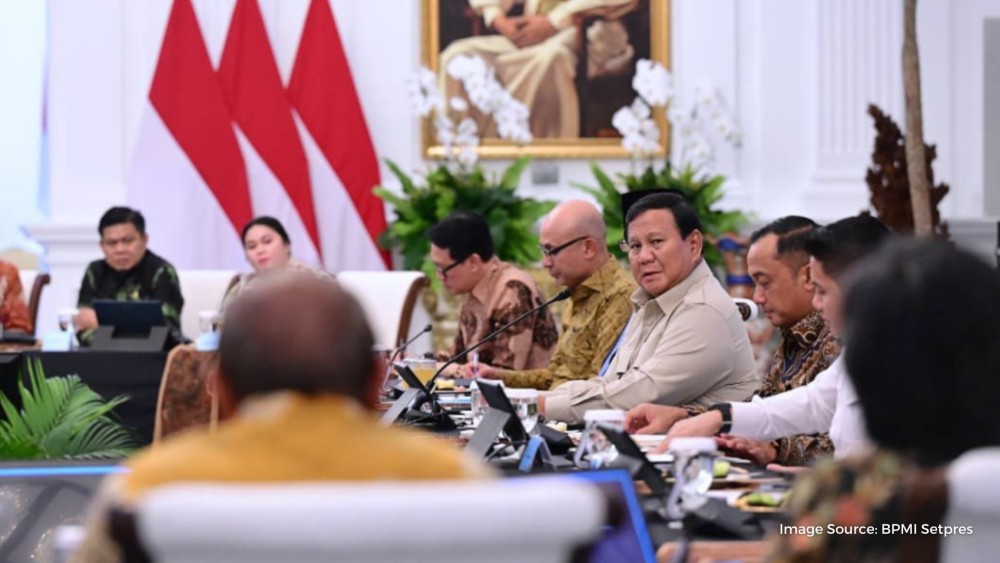This Week’s Headlines (Nov 11 - 17, 2023)
17 Nov 2023

MG to start manufacturing EVs at Rp 4t plant in W. Java in February
Automotive brand Morris Garage (MG) will kick off production at a new factory in Cikarang, West Java, in February, the company announced on Wednesday.
The investment in the facility totals some Rp 4 trillion (US$257 million), according to Arief Syarifudin, marketing and PR director for MG Motor Indonesia, as quoted by Bisnis.com.
The plant is located near the production facility of MG's sister company, Wuling. Both brands are owned by Chinese state-owned car manufacturer SAIC Motor Corp, which invested some Rp 10 trillion in the factories.
Initially, MG's assembly facility is expected to produce the electric vehicle (EV) version of its ZS model, followed by the MG 4 EV a month later.
The company said the factory would have an annual production capacity of 100,000 units, with 60 percent of that figure dedicated to EVs. This would help MG increase its local content share to 60 percent by 2027, making its cars eligible for a value-added tax cut.
Around 70 percent of the factory's production will be for domestic market, while the rest will be exported to other countries, such as Australia, starting in the fourth quarter of next year, according to the Bisnis.com report.
Established as MG Rover Group in the United Kingdom in 2000, the firm collapsed in 2005 and was acquired by Chinese automaker Nanjing Automobile, which was subsequently acquired by SAIC Motor in 2007.
Currently, all MG units sold in Indonesia are completely built up (CBU) vehicles from its manufacturing plants in Thailand and China. According to data from the Association of Indonesian Automotive Manufacturers (Gaikindo), MG sold 941 vehicles in Indonesia from January to October this year.
National car sales in the country have been sluggish recently. In October, retail car sales edged up to 80,270 units, a 13.9 percent decline from October 2022. In the January-October period, retail car sales amounted to 825,691, up 0.4 percent from the same period in 2022.
With the year drawing to a close, Gaikindo remains hopeful about a rebound in November and December to meet its annual sales target of 1.05 million vehicles for 2023.
Japanese automobile manufacturer Mitsubishi Motors Corporation also reportedly plans to bump up its investment in Indonesia to increase its production capacity, including for EVs.
The automaker is expected to invest a total of Rp 12.3 trillion in Indonesia this year, according to an Industry Ministry statement in August, with plans to increase the production capacity of its facility in Deltamas, West Java, to around 231,000 cars in 2024 from a projected 176,000 cars this year.
Source: The Jakarta Post
Trade Balance Sees $3.4B Surplus in October
Indonesia’s trade balance posted a surplus of $3.48 billion in October, marking a record 42nd consecutive month of a positive balance, according to government data released on Wednesday.
The October surplus saw a slight increase from $3.41 billion in the previous month but narrowed by 2.12 percent on a year-on-year basis.
The Central Statistics Agency (BPS) reported that exports in October amounted to $22.15 billion, representing a 6.76 percent rise from September. However, the amount was 10.43 percent lower than the export value in the same month last year.
Meanwhile, imports in October totaled $18.67 billion, up by 7.68 percent from the September data, but down by 2.42 percent year-on-year.
In the ten months ending October, Indonesia’s trade surplus totaled $31.22 billion, as opposed to a surplus of $45.44 billion in the same period last year.
During the January-October period, Indonesia’s exports stood at $214.41 billion, down by 12.15 percent year-on-year, while imports fell by 7.77 percent to $183.19 billion.
Source: Jakarta Globe
Jokowi conveys 3 focuses of ASEAN Caucus, including energy transition
President Joko Widodo (Jokowi) stated that three fields of cooperation, including energy transition in the region, can become the focus of the ASEAN Caucus in the APEC Business Advisory Council (ABAC).
At the ABAC ASEAN Caucus Day in San Francisco, the United States, on Wednesday, Jokowi noted that the first focus is energy transition acceleration, among others, regarding ASEAN's agreement to become a global hub for the electric vehicle industry.
"The ASEAN Caucus can become an important part of strengthening this initiative," he noted in a statement from the Press Bureau of the Presidential Secretariat received on Thursday.
Jokowi remarked that energy transition requires investment and technology support, wherein the Indo-Pacific Impact Fund initiative can have a significant role.
Moreover, the other focus that is deemed important is the achievement of carbon neutrality.
He remarked that the economy must continue to grow in line with ASEAN's commitment to preserving the environment.
According to Jokowi, the ASEAN has agreed on a strategy for carbon neutrality.
Furthermore, he stated that Indonesia is targeting to achieve net zero emissions by 2060. He emphasized that the target can be achieved through concrete cooperation, especially in the government and business sectors that the ASEAN Caucus can bridge.
He also encouraged the active role of the ASEAN Caucus in supporting ASEAN's commitment to accelerate the implementation of cross-border digital payments through cooperation between financial institutions.
"I am sure the ASEAN Caucus can play a role in this initiative," he remarked.
The president welcomed the establishment of the ASEAN Caucus to strengthen ASEAN's centrality in the ABAC.
Through the ASEAN Caucus, the government-business partnership is expected to become stronger.
He also emphasized that ASEAN is one of the strategic regions with strong capital to become a center of global growth.
The ASEAN has several strengths that become important assets, such as economic growth above the world average and a large young population.
Furthermore, he noted that the maintained regional stability is also a strength for ASEAN.
"This is an important asset that allows ASEAN's voice to be heard more loudly in various forums, including APEC," he remarked.
Source: Antara News

















